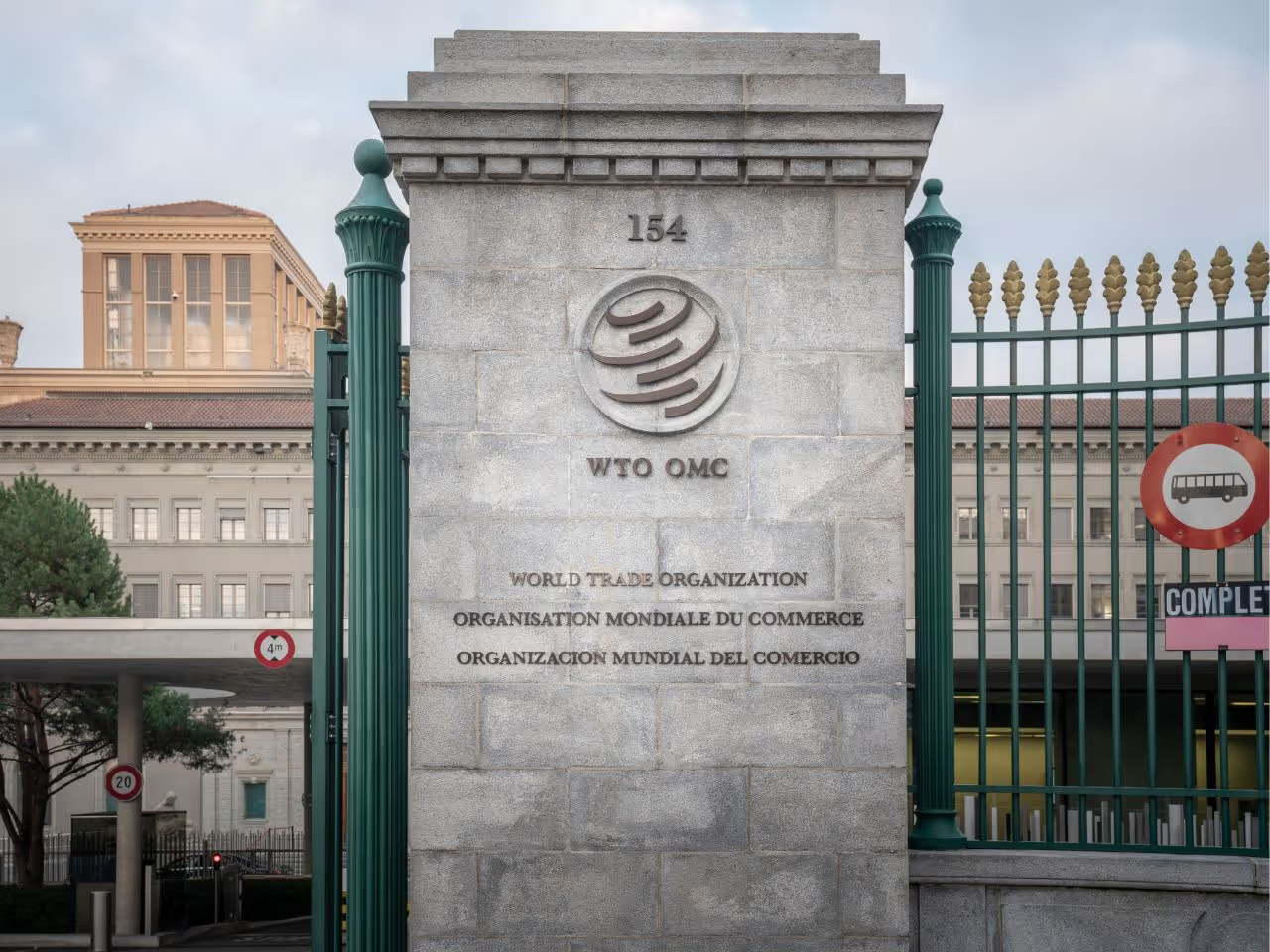The Joint Initiative (‘JI’) on Electronic Commerce at the World Trade Organization (‘WTO’), announced in Geneva on July 26, 2024 marks the first global digital trade agreement and sets a precedent for the future of digital transactions worldwide.
This JI promises to revolutionise global trade by making it faster, cheaper, fairer, and more secure to conduct. The co-conveners of the Joint Initiative, Australia, Japan and Singapore, confirmed in a statement on behalf of the participants that after five years of negotiations, participants had achieved a stabilised text.
Ninety-one of the WTO's 166 members (together accounting for more than 90% of global trade) participated in the negotiations, including China, Canada, Argentina, Nigeria, and Saudi Arabia. However, the United States expressed that while the new text is a significant step forward, it falls short in certain areas and requires further work, especially regarding exceptions for essential security interests.
Other countries, such as Brazil, Indonesia and Turkey, also had reservations, mostly on minor points. Despite the agreement, making it a formal WTO accord may be challenging, as consensus among all WTO members is required. India and South Africa have been particularly critical of deals that exclude some members.
As countries increasingly digitalise their societies, the importance of eID and electronic signatures (‘eSignatures’) is more pronounced than ever. These components are pivotal in ensuring secure and efficient digital transactions, which are fundamental to the JI's goals.
Prior to this, the absence of a common set of global rules on digital trade had resulted in fragmented approaches to digital trade regulation, resulting in increased barriers for businesses, workers and consumers.
The Foundation of E-Commerce: eID and eSignatures
eID and eSignatures form the backbone of modern digital transactions. eID (or electronic identity), provides a way to authenticate individuals and verify that they are who they claim to be when conducting business online. This is crucial for maintaining trust and security in digital interactions.
ESignatures offer a method to sign documents digitally, ensuring they are legally binding and verifiable. The JI emphasizes the importance of eSignatures by setting out commitments that encourage their use and recognition. This not only simplifies the process for businesses and consumers but also ensures that electronic transactions are treated with the same legal weight as traditional paper-based ones.
Specifically, the JI states in Paragraph 5.4 “Notwithstanding paragraph 3, a Party may require that, for a particular category of transactions, the method of authentication or electronic signature meets certain performance standards or is certified by an accredited authority in accordance with its laws or regulations."
We expect, therefore, to see parties starting to require the use of proper and qualified electronic signatures.
While in Paragraph 5.7 it states that “Parties may work together, on a voluntary basis, to encourage the mutual recognition of electronic signatures.” This means that where qualified eSignatures are required cross border, then it is encouraged to accept equivalent Qualified Electronic Signatures (‘QES’) from other jurisdictions. Without that, one country could still require a local QES. We expect cross border recognition will increase and that whatever app a person uses will be accepted elsewhere in the world.
Enabling E-Commerce through Modern Frameworks
The JI lays out a comprehensive framework for enabling e-commerce, focusing on several key areas:
1. Electronic Transactions Framework: this ensures that electronic and paper-based information are treated equally, granting legal recognition to electronic transactions and processes. This move is vital for businesses looking to operate more efficiently and securely in the digital space.
2. Electronic Authentication and Signatures: by facilitating interoperable electronic authentication and promoting the mutual recognition of eSignatures, the JI paves the way for more seamless cross-border trade. Businesses can confidently use eSignatures without fearing rejection purely because they are in digital form.
3. Electronic Contracts: the agreement guarantees that electronic contracts are valid and legally enforceable. This helps businesses explore new exporting opportunities and simplifies the process of entering into supply contracts internationally.
4. Electronic Invoicing: legal validity of electronic invoices ensures quicker transactions and resolves billing issues efficiently, benefiting both businesses and consumers.
5. Paperless Trading: by making the majority of trade-related forms available and accepted electronically, the JI significantly reduces administrative barriers and transaction costs.
6. Single Windows Data Exchange and System Interoperability: this streamlines import, export, and transit procedures, making trade faster, simpler, and cheaper.
7. Electronic Payments: the JI supports the development of regulations for electronic payment services, facilitating transparency and the adoption of international standards.
While the adoption of digital customs systems under the JI would not be universal, even a partial adoption could represent a significant boost to trade. It would not be a surprise if customs authorities will require QES on customs declarations.
Building Trust in E-Commerce
Trust is a critical component for digital trade. The JI addresses this by mandating robust online consumer protection frameworks, personal data protection, and cybersecurity measures. These provisions ensure that consumers and businesses can engage in digital trade with confidence, knowing that their rights and data are protected.
Global Benefits and Opportunities
The global digital trade market stands to gain significantly from the JI as digital trade already represents a substantial portion of global commerce. The JI’s provisions for modern transaction frameworks, electronic authentication, and eSignatures will further bolster the efficiency and security of digital transactions, enhancing global competitiveness. eID Easy has been making the use of QES cross borders simpler and facilitating cross border transactions for our customers for some time now.
Conclusion
The WTO Joint Initiative on E-Commerce is a landmark agreement that underscores the importance of eID and eSignatures in the digital age. By setting global standards and fostering cooperation among nations, the JI ensures a secure, efficient, and inclusive digital trade environment. For businesses and consumers alike, this means greater opportunities, reduced costs, and enhanced trust in digital transactions. As the digital landscape continues to evolve, the role of eID and eSignatures will only become more integral to global commerce.


